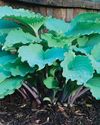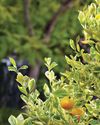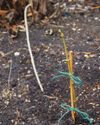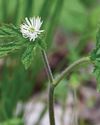
Seeds are programmed to grow, but sometimes they seem stubborn. Remember these tips to increasing the odds of successful sprouting:
Seeds are alive, and the energy stores they contain deplete over time. Before sowing seeds leftover from prior years, roll several in a damp paper towel and set it in a warm spot. Check for germination every few days. If a good percentage sprouts, the packet is worth sowing. Storing seed in a cool, dry place—such as the refrigerator—extends its lifespan.
The seeds of most vegetables and annual flowers sprout quickly after sowing if kept moist and warm. Sow them in a potting mix formulated for seeds, water them well and keep them at room temperature. It’s the moisture that awakens them from dormancy so they begin to swell and grow. If the pots dry out after sowing, the seeds can easily die. You can soak just about any kind of seed in water for up to 24 hours before sowing them, and this usually shortens the time it take them to sprout.
Unlike annual species, most hardy perennial, tree and shrub seed will not germinate immediately after sowing. They require a chilling period (in nature, that’s winter). When sowing these seeds for the garden, dry cold storage is not sufficient; the seed needs to absorb water to sprout. To replicate winter, mix the seed with damp potting soil in a self-sealing plastic bag and place it in the refrigerator. The exact length of damp chilling depends on the plant, but 90 days is a safe bet. After this time, pour the contents of the bag atop a pot of potting mix, add more mix on top and set the pot in a bright, warm spot.
Esta historia es de la edición March - April 2023 de Horticulture.
Comience su prueba gratuita de Magzter GOLD de 7 días para acceder a miles de historias premium seleccionadas y a más de 9,000 revistas y periódicos.
Ya eres suscriptor ? Conectar
Esta historia es de la edición March - April 2023 de Horticulture.
Comience su prueba gratuita de Magzter GOLD de 7 días para acceder a miles de historias premium seleccionadas y a más de 9,000 revistas y periódicos.
Ya eres suscriptor? Conectar

WINTER READING
Pass the time with any of these inspiring books

TOP-PRIZE PERENNIALS
A foliage masterpiece for shade and a late bloomer for sun

MARK WESSEL
What's new for fruit and vegetable gardeners?

KINGS OF THE NORTHERN FORESTS
A look at the trees, shrubs and perennial plants that bolster life in Ecoregion 5

BLUEBERRIES & CO.
Members of the genus Vaccinium provide sweet flavor, health benefits and beauty in the garden

Take It Indoors
Cs the growing season dwindles, _ potted cittus became a summer souuenir

ROOTED IN PLACE
LAYERING IS A PROPAGATION TECHNIQUE THAT TAKES A WHILE TO COMPLETE, BUT IT DEMANDS LITTLE EFFORT FROM THE GARDENER

Weeding Out Worry - Two books give perspectives on gardening's importance to mental health
Two books give perspectives on gardening's importance to mental health. One is written by a psychiatrist and psychotherapist who draws on decades of experience as a clinician and a gardener to discuss how gardening and interaction with the natural world benefit us. The other is written by a woman with mental illness whose efforts at becoming well brought her to outdoor activities, including gardening.

A Big Role for SMALL GRASSES
The unexpected benefits of small native grasses

GOLDENSEAL
A woodland herb worth guarding